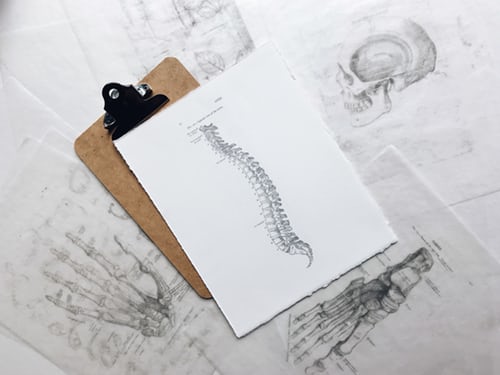Due to the prevalence of the sedentary lifestyle, many people experience back pain and back problems. While back pain can sometimes be relieved by simple exercise and minor changes (for example, changing the chair you’re sitting on while working), there is also serious back pain that requires surgery. Diagnosing back problems can be tricky, and deciding whether you need surgery even more so, as most back problems can be resolved within three months. Here are some signs that your condition requires spine surgery.

Your life is changed

It is completely normal and expected to lose some of your mobility as you age because this is a biological process that can’t be stopped. It is, however, very important to maintain the quality of life and be able to function as you did in the past, only with minor changes. If your back problems are so severe that you have a hard time going to work and doing everyday tasks, it’s a sign that your health is affected and that you should consider surgery. If you’ve had problems sitting down and getting up, cooking, cleaning, and doing your job for longer than three months, it’s time to see a specialist and talk about options.
What surgery should you get
Before you even begin pursuing spine surgery, there are many questions you should consider that are going to help you make the best decision. If your doctor believes that a non-surgical method isn’t an option for your condition, ask them what kind of spine surgery they believe would be best. Minimally invasive surgery is very popular today, but there are still cases when traditional spine surgery would be a better option. On the other hand, people aren’t always sure which one is better and how they differ in the first place, which is why consulting a doctor is imperative.
Different kinds of surgery
Discectomy is the surgery where the doctor removes the herniated portion of your disk, and this will reduce irritation and inflammation of the nerve. When you get this surgery, the back portion of your vertebra is either fully or partially removed because this is the only way to access the ruptured disk. If the surgeon needs to remove the bone that’s overlying the spinal canal, you will undergo laminectomy. Afterwards, your spinal canal will be enlarged, and the nerve pressure will be relieved. Spinal fusion surgery will permanently connect two (or even more) bones in your spine, and it will add more stability to a spinal fracture. If you have an injured disk, the surgeon can recommend this procedure to reduce the painful motion between vertebrae. There is also an option to get an artificial disk implanted, but it’s not widely available as it’s a relatively new procedure.
Getting the right diagnosis

Back problems are mostly caused by two things: disc and bones. Disk problems involve herniated disks and bulging. Disks are those rubbery cushions that separate the bones of the spine, and it can happen that they press too tightly against a spinal nerve. If this happens, spinal nerves don’t function properly, and you begin to notice problems with your legs. On the other hand, it can also happen that your bones are overgrown, and this is caused by osteoarthritis. When you have osteoarthritis, you can get very painful bone spurs on your spine. This excess bone is not only painful but it also usually affects the hinge joints on the back of your spinal column. As a result, the space for nerves becomes very narrow, and they can’t pass freely through the openings in your spine. Sadly, it’s very difficult to point to the cause of the pain even if X-rays show that you have disk problems or bone spurs.
The right mindset
A lot of people are terribly afraid of surgeries, especially the ones involving their spine because they fear that there will be complications which will cause them to lose feelings in different parts of the body. While this might have been true in the past, the situation is completely different today. Modern medicine has advanced so much that approaches to spine surgery are completely different than in previous decades. These innovations, combined with experienced professionals such as Australian neurosurgeon Dr Timothy Steel make surgeries a good experience. These kinds of operations are done on a daily basis and are incredibly quick and efficient.
You’ve tried other things first
If you’re experiencing back pain for many months (or your old back pain keeps returning after a while), don’t hesitate to try non-operative methods first. You might decide to visit a physiotherapist and try a massage, or you have heard about a great chiropractor and want to see if they can help you. Others swear that acupuncture has changed their lives for the better, and there are people who undergo physical therapy in hopes of alleviating pain. All of these methods are popular, and they might help you, but you should also talk to your physician first and see what they recommend because it can be dangerous doing some of these without the doctor’s approval.
The danger of nerve damage
In some cases, back pain and spinal problems can cause nerve damage, and there is the danger of people ending up with permanent disabilities. As frightening as this may seem, it’s also possible to detect and prevent severe nerve damage. The most important thing is to pay attention to your legs and note if there is any tingling or numbness. These are the two most common signs, but they are quickly followed by bladder and bowel problems (incontinence is easiest to spot). If you notice any of these symptoms, visit a specialist as soon as you can and try to find out if they are caused by nerve damage. Self-diagnosing is very dangerous and you should consult an experienced physician instead.
You’re getting worse
Sometimes, back pain will disappear with the right treatment, and sometimes even without treatment (minor sports injuries, etc.), yet if your condition continues to get worse instead of better, you should get the surgery done soon. Fortunately, in most cases, you are going to have enough time to consider different treatment options and make an informed decision about whether or not you are going to get spinal surgery. It’s no secret that both doctors and patients are hoping to avoid surgery when possible, but this isn’t always the case. If you have experienced a severe injury and your condition is worsening by the day, you may even require spinal surgery on very short notice.
You have a crooked spine

In case the natural curvature of your spine is affected by certain health conditions, you may end up with a number of problems and impairments. The most common conditions are scoliosis (a sideways bend in your spine), kyphosis (a forward bend), and flat-back syndrome. Even though scoliosis and kyphosis can usually be managed without surgery, there are also cases when spinal curvature is so advanced that it’s necessary. The same goes for flat-back syndrome: if non-operative methods don’t lead to desired results and significant improvement, surgical intervention is required.
Locating the deformity
If your back pain is caused by a physical deformity, surgery is the best choice, especially if it’s a treatable one. To determine this, you need to undergo several medical exams first, and see if your doctor can point out the deformity. For example, people who have degenerative scoliosis experience severe back pain, and their condition can be corrected and the issue resolved by surgery. This is the reason why you should undergo several exams: the better the surgeon can pinpoint the cause of your back pain, the better your chances are of getting a successful intervention. Remember that even leg pains, tingling and numbness can be a symptom of back deformity.
Pros and cons
In the end, the most important thing is to weigh out your options and see all the pros and cons of getting vs not getting surgery. If the pros outweigh the cons by far, you’re good to go. If, on the other hand, your doctor believes that they can’t detect the underlying cause of your back pain, they might not recommend you get surgery because the success rates are significantly lower in these cases. If physically correcting your spine issue will result in alleviating pain, your doctor can recommend that you get elective surgery, but if they aren’t certain about the outcome and the success rates, they might advise you to wait.
There are cases when non-surgical methods are appropriate and effective, but spine surgery is still one of the most effective methods of treating serious back problems. If spine surgery is what your doctor advises you to consider, you should take some time to learn as much as possible about different kinds of surgery as well as about different kinds of back problems. The most important thing, though, is to be mindful of your health and your body and to follow doctor’s orders because this will result in swifter recovery.
